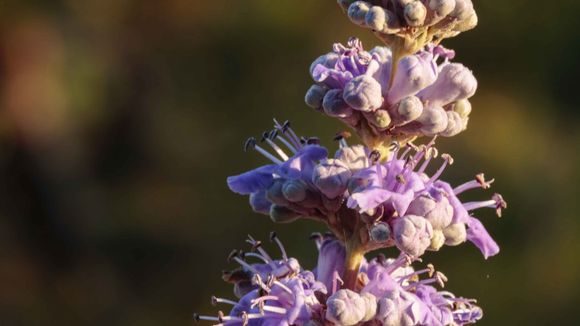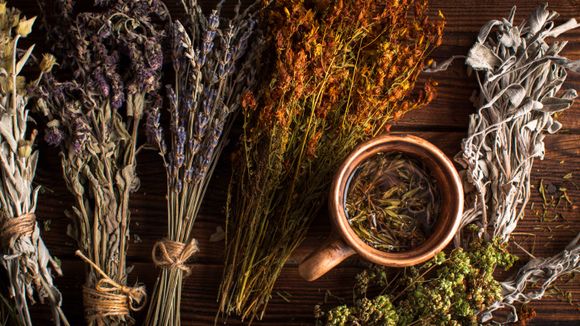What are the main symptoms of hormonal imbalance?
When hormones are at balanced levels, a person feels vibrant and energetic, sleeps soundly and deeply, maintains normal weight and good concentration. However, when hormones are in imbalance, i.e. at low or elevated levels than normal, then we are talking about hormonal imbalance. And since these chemical messengers are interrelated, disruption in the rhythm of one hormone leads to dysregulation of other important hormones.
The right balance of hormones is essential for effective reproductive cycles such as the process of ovulation in women and the overall system of conception. For men, hormones are crucial in terms of male sexual characteristics, reproductive abilities and libido.
The human body uses more than fifty hormones to guide various systems and bodily functions such as growth, metabolism and temperature regulation, sleep and wakefulness cycles, and more. A hormonal imbalance is an incorrect amount of one or more hormones in the blood. The timing of hormone(s) release, interactions with other hormones, and the ability to respond through cellular receptors are also important for hormonal balance. It has been shown that an imbalance of hormones associated with reproductive health in one or both partners can make it difficult to conceive and pregnancy. Hormonal imbalances are also the leading cause of infertility in women, but they are often treatable with lifestyle changes and medications, and some phytotherapeutics can act positively.
Hormonal imbalance can also cause infertility in men, but it is a less common factor of infertility in men than in women.
The most common symptoms of hormone imbalance in women are:
- Lack of menstrual cycle
- Irregular menstrual cycle
- Abundant or painful menstruation.
- Increased hair on the face, neck, chest and back
- Unexplained weight gain
- Constipation and diarrhea
- Low libido
In men, the following symptoms may occur:
- Erectile dysfunction
- Low sperm count
- Reduced growth of body hair
- Breast tenderness and breast tissue overdevelopment
- Thinning hair or hair loss male type
In case of symptoms of hormonal imbalance, it is important to seek medical attention to do the necessary tests. Then determine the mode of treatment and therapy, which may include hormone replacement therapy, medications, herbal and other means.
Herbs and natural remedies for hormonal imbalance
Herbs are a group of plants whose leaves, flowers, roots and seeds are used for a variety of purposes, including therapeutic. It is important to clarify from the beginning that the use of herbs to balance hormone levels is not recommended for every person. Herbal medicine has proven its usefulness and effectiveness over time, yet some herbal remedies may be safe for some, but dangerous for others.
Women who are pregnant, breastfeeding, using hormone therapy, living with endocrine or mental disorders, or having cancer are at risk of dangerous side effects associated with taking certain herbs. Therefore, they should always consult a doctor before taking herbs and natural remedies for hormonal imbalance.
For the rest, there is a palette of herbs and natural remedies that work for different types of hormonal changes. Let's see in particular what the opportunities and benefits are.
Seeds of Nigella sativa (Black cumin)
Nigella sativa is also known as kalonji, chelebattle and others. Its flowers produce small black seeds rich in antioxidants. These seeds have healing properties because they contain thymoquinone – a type of phytonutrient or plant compound.
Researchers investigated the protective and therapeutic effects of nigella seeds in women with polycystic ovary syndrome (PCOS). PCOS is a disorder associated with abnormal hormone levels, among other symptoms, in women of reproductive age. [ref. 1]
In animal studies, nigella seed extracts have helped regulate levels of insulin, testosterone, luteinizing hormone, and thyroid hormones, among others. [ref. 2]
In addition, Nigella sativa extract exhibits estrogenic activity, which means it acts similarly to the hormone estrogen in your body. This would obviously not be appropriate if you have increased estrogen in the body.
With regard to these seeds, note that most studies were conducted on animals and concentrated extracts or isolated thymoquinone were used. There are still a limited number of studies on this action of nigella seeds in humans.
Ashwagandha (Withania somnifera)
Ashwagandha, also known as winter cherry, Indian ginseng or Withania somnifera, is an evergreen shrub of the Solanaceae family. Ashwagandha is highly revered in herbal medicine, being used in many supplements, teas and powders.
This adaptogen is thought to help the body overcome stress by moderating the hypothalamic-pituitary-adrenal (HPA) axis of the brain. This axis produces and releases numerous hormones including cortisol that initiate your body's response to stress. Cortisol helps you get through stressful and stressful moments. However, according to studies in humans and rats, chronic hormone imbalance can cause endocrine disorders such as Addison's disease and Cushing's syndrome. These are some of the possibilities of applying ashwagandha to regulate the hormone cortisol. [ref. 3]
Ashwagandha can also affect other hormones. For example, researchers are investigating how it alters insulin levels, reproductive hormones, and more, gathering enough data for more definitive claims. Another important thing about this Ayurvedic star is that it may not be safe for pregnant and breastfeeding women, as well as for people with autoimmune diseases or thyroid disorders.
Vitex agnus-castus (Vitex agnus castus)

Vitex agnus castus (also known as Chaste Wood and Abraham Tree) is a multifaceted herb for hormonal problems in women. It has remarkable hormonal balancing activity and has been used by herbalists for centuries for menstrual problems, cycle regulation, increased fertility, and to help women during menopause.
Vitext works by supporting the hypothalamus gland (a gland in the brain that controls the hormonal system). It is known to balance a woman's estrogen/progesterone ratio (the main reproductive hormones) by increasing progesterone and lowering estrogen accordingly. So, vitex is especially useful in conditions with low progesterone, including a short menstrual cycle, irregular cycle, PMS, and acne. [ref. 4]
Vitex agnus may also lower prolactin levels and increase LH (luteinizing hormone). High prolactin has been linked to infertility and cycle arrest in women. LH is the hormone that helps control the menstrual cycle and causes ovulation (the release of an egg from the ovaries). With various hormonal disorders of this type of vitex, agnus castus has applications. [ref. 5]
Peony (Paeonia lactiflora)
Peony (Paeonia lactiflora) is a type of herb whose roots are commonly used in traditional Chinese medicine for many purposes. Peony can block chemicals that can cause pain and swelling. It can also prevent blood clotting, kill cancer cells, and act as an antioxidant. [ref. 6] It can be combined with other plants to maintain hormones (often in combination with vitex).
Peoniflorin is one of the active ingredients in the plant. It has anti-inflammatory, antispasmodic and sedative action. In vitro experiments have also shown that it can affect ovarian follicles through its action on the enzyme called aromatase. This enzyme is widely found throughout the body, especially in the ovaries, liver and adipose tissues.
Peony works to normalize aromatase activity, as well as reduce androgen production. Excess androgens can manifest as extra facial and body hair, cystic acne, female pattern baldness (mostly PCOS symptoms and also after menopause). [ref. 7]
Angelica sinensis

Angelica sinensis is known as female ginseng because of its numerous therapeutic effects on the female reproductive system.
Considered blood-building and tonic, Dong Kwai is used by herbalists to enrich a woman's blood supply, strengthen the uterus, promote blood circulation, and increase blood flow to the reproductive system — all key to a regular, healthy menstrual cycle.
Dong Kwai contains compounds called coumarins, which have been shown to relax the muscles of the uterus and reduce inflammation, making this plant suitable for menstrual cramps. It is also useful for symptoms of PMS and menopause, such as hot flashes. [ref. 8]








